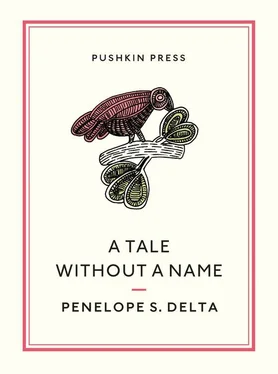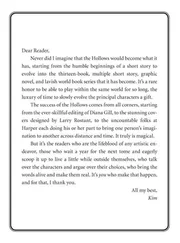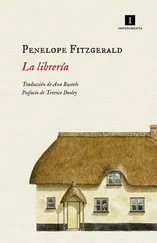And he pointed all around him to the thorny thistles and the weeds that covered the earth.
“The entire country prospers in this same way, like my little garden here,” he went on. Once upon a while, this tiny corner of the earth was blessed by God. Yet who would know it now? My boy is gone away, I am left alone, and I am tired of working for the benefit of others.”
“Why did your son go away?” asked the Prince.
“What else might he do here? Together we cultivated our fields, which stretched as far as there yonder, and we sold our yield to the neighbouring villages. We even grew oranges, apples and grapes. The choicest greens and fruit ripened here, before they did so anywhere else. The palace would send here for its provisions of all the fine things it wanted. But things changed, our good King died, and his son is having forty winks. That is why we are all going to the devil.”
“Why do you say he is having forty winks?” asked Little Irene, flushing red, her eyes filling with tears.
“Well, he may not be really asleep and dead to the world, but it amounts to much the same thing, since he only knew how to command evening balls, and great feasts; and he never cared about work of any sort, till he consumed all he had, and more that he did not—”
“This does not tell us why your son went away,” interrupted the Prince, who did not wish to hear more about his father.
“How does it not? Back then, in the good times, when Prudentius I was still alive, the palace paid for what it received. And it paid well. Afterwards, it no longer paid, but it still received. So, hurriedly and furtively, we would harvest and send away the choicest things in the land, so we might earn some money at least. Yet the roads, with no one to care for them, fell to ruin, our carts would smash in the ditches. Before long, not even our beasts of burden could get through. Our grain would rot in the storehouses, or the palace would feed on it, without paying. Poverty and misery fell upon the land, commerce was ruined, the storehouses crumbled and collapsed, the young men left, the best went to foreign lands, others went to the capital, to become, they said, scientists, and are still there now, starving. The worst stayed behind and are scraping a living by making themselves a burden to their fellow men. He got fed up, my son, he sold our fields for a pittance, left me the money and he too then went abroad. I used to cultivate my garden, growing my own vegetables, buying my own bread. But no one is safe any longer!”
“What do they do to you?” asked Little Irene.
“What don’t they do to us, you might well ask, my girl! The village has been deserted, there is no man left to protect us, they steal whatever is in our gardens, and out of spite they destroy our trees and our vegetables. Just to show you, only last night they stole the few raspberries that were ripening slowly on my bramble hedge. And that’s not all! They also hacked the entire plant to pieces and pulled it out of its roots! I am fed up, I have given up, and I too live on just any old how, till my days are spent and I may find peace from the troubles of this world. Such is my lot.”
“And the money that your son left you?” asked Little Irene.
“Stolen, my girl, gone, never to be seen again! You think there will be money left, when they do not even leave us our bread?”
“How come you do not go to court?” asked the Prince outraged. “Why then do we have judges?”
Penniless laughed.
“The judges are not for our sort,” he said. “They are for the rich, who fill their pockets. From us, the have-nots, they can make no profit. Go, if you want, to the trial of Miserlix, as you are headed to the capital and are curious to know. There you shall hear justice being pronounced.”
“I shall go indeed,” said the Prince. “I wish to see with my own eyes what you have said.”
“Do go, my boy, and witness with your eyes, hear with your own ears. The trials take place in the square, under the great plane tree.”
The two siblings bid farewell to the old man, and took the road to the capital.
They arrived late. The sun had descended behind the mountain, the trial, at this hour, was over.
The Judge, wrapped in his frayed red coat, which had lost its original colour with the passing of time, was getting up to go home, while two scruffy policemen were trailing behind them a shabbily dressed, pale man, hands in shackles, leading him away to prison. His head was bandaged with a scarf, and, full of grief, he held tightly in his arms his daughter, who was crying with heavy sobs.
“Who is this man?” asked the Prince.
“It is Miserlix, the blacksmith,” answered one of the bystanders.
“Why are they taking him to prison?”
“Bless me if I know! He stole, so they say, some hens. I did not understand very well, they did not say much, but they have sentenced him to two years in prison. Yet he was a fool, if ever there was one! He claimed that some palace courtier stole chickens, wine and I know not what else from him, then sent him rolling down the mountain slope where he split his head. Someone also stole from him, he says, his watch and two silver five-crown coins. You may be sure that His Excellency, Judge Faintheart, ticked him off all right, called him a liar and a thief. He then told us that not only was it not true that his chickens had been stolen, but that it was Miserlix himself who had stolen them, I know not where from. The Judge gave orders for him to be beaten till he confessed the truth. Miserlix then took fright, and asked them not to beat him; he would agree to go to prison, and they could say what they liked, even that it was he who had stolen the hens. Couldn’t he have stayed quietly in his corner, the fool, instead of seeking courts and justice?!”
“But this is shameful! It is downright sinful!” the Prince cried, furious.
“Shameful or not, sinful or not, that’s the court of justice for you,” answered the other.
“No, this is not what the court of justice should be!” said the Prince. “Where does the Judge live?”
They pointed out the house to him, and he ran and knocked at the door, pulling Little Irene by the hand.
The Judge was already back by then, and was sitting at his table eating mackerels with relish, and drinking brandy made from mastic.
“Who goes there?” he shouted with his mouth full, not bothering to get up.
“Open up!” ordered the Prince. “I have things to say to you concerning Miserlix.”
“Oh, go away, leave me alone!” replied the Judge, biting into another crunchy mackerel.
“Open up! ” shouted the Prince. “Or I swear to you, before the sun has risen, I will have your head for this.”
“Heavens!” exclaimed Faintheart. “It has to be the King!”
Trembling like a leaf, he rushed to open the door. Yet when he saw the two children before him, his fright turned to rage.
“What’s the meaning of this? Are you trying to make a fool of me?” he asked snappishly. “Get out of here right now, or I shall have you both thrown into prison.”
Calmly, yet resolutely, the Prince pushed him aside, and entered the house with his sister.
“I give you fair warning, Master Faintheart, to listen to me and to listen well. Close the door and come here.”
The boy’s imperious tone made Faintheart cower and shrink.
“What do you want?” he asked, subdued.
“I want you to get Miserlix out of prison, at once!”
“All right, all right, there is enough time for that,” said the Judge lightly. “Those mackerels are still nicely warm and scrumptious. Wouldn’t you like one?”
“I am not in a mood for jokes, Master Faintheart,” said the Prince sternly. “Either you get Miserlix out of prison at once, or you will be dealing with me.”
Читать дальше












